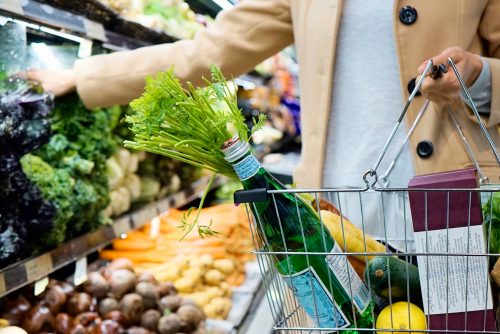Inflation reaches 6.2% – the highest in 30 years

UK inflation has reached its highest level in three decades as fuel, energy and food costs surged.
Prices rose by 6.2% in the 12 months to February – the fastest for 30 years.
Figures from the Office for National Statistics showed a jump in the cost of living from 5.5% in January.
Further increases in the annual inflation rate are expected as higher motoring costs triggered by Russia’s invasion of Ukraine and April’s increase in domestic energy prices take effect.
In February, gas prices were almost a third higher than a year earlier, and electricity prices were up by nearly a fifth, the ONS said.
Petrol and diesel price rises also pushed up the cost of living – February had the highest average diesel price recorded by the ONS – while clothes and footwear, furniture, and food and drink were also big contributors to the rate of price rises.
Grant Fitzner, chief economist at the Office for National Statistics (ONS), said: “Inflation rose steeply in February as prices increased for a wide range of goods and services, for products as diverse as food to toys and games.
“Clothing and footwear saw a return to traditional February price rises after last year’s falls when many shops were closed.
“Furniture and flooring also contributed to the rise in inflation as prices started to recover following new year sales.
“The price of goods leaving UK factories has also been rising substantially and is now at its highest rate for 14 years.”
The figures have been published as Chancellor Rishi Sunak faces growing calls to offer more support as household budgets are squeezed when he shares his spending plans at midday today.
There is speculation Mr Sunak could cut fuel duty, boost benefits and raise the threshold for national insurance
The Bank of England said last week it expected inflation to be about 8% in April with the risk of a double digit increase in the Autumn if there is another sharp increase in the energy price cap.
AJ Bell financial analyst Danni Hewson said the latest inflagtion rise was “just the tip of the inflation iceberg.”
She said: “There are some obvious factors at play; post-Christmas sales petered out in February pushing up the cost of shoes and clothing just as many people were being asked to head back into the office which required a slightly less relaxed wardrobe and maybe a few bulky sweaters.
“The cold snap that had many of us nervously eyeing our thermostats came at a price – it might have been the price capped back in October, but it was still considerably higher than the year before. And February had the highest average diesel prices ever recorded by the ONS but motorists would queue round the block if they spotted diesel at 151.7p a litre today.
“Because, put simply, what people experienced in February was just the tip of the inflation iceberg. Putting Russia’s invasion of Ukraine aside for the moment, next month’s rise in the energy price cap is massive.
“Even if the current warm spell continues, just keeping the lights on is going to ratchet up the pressure on household budgets.
“The prices of products leaving the factory gate are now at the highest level for 14 years and food products are right at the top of the pile. And the cost of those materials is also heading just one way and that’s where the subject of war can’t be ignored any longer.”
She added: “A happy co-incidence or unfortunate timing, these figures won’t tell the Chancellor anything he doesn’t already know. But knowing and understanding are two different things. The cost of living is a crisis, it’s pushing some households deep into debt and deeper into despair.
“Yesterday’s borrowing figures gave Rishi Sunak some wiggle room, the economy has been recovering after its Covid nap but the next few months could stifle growth which leaves the Chancellor with quite a tight rope to walk.”




